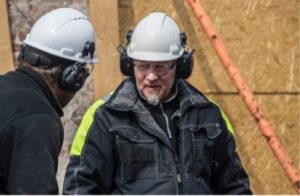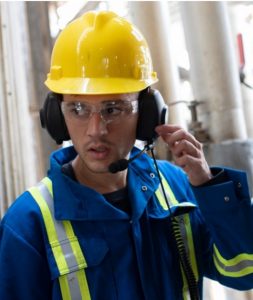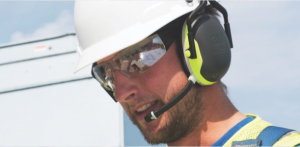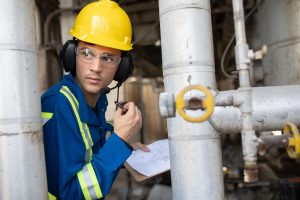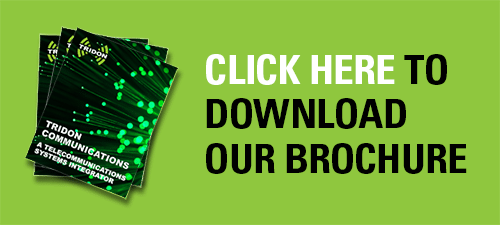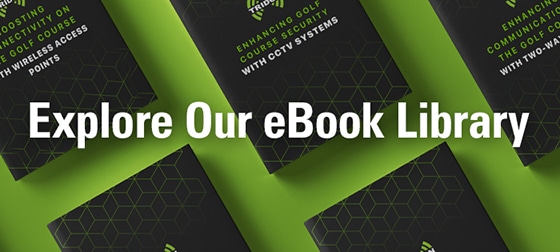The right two-way radio headset can provide excellent hearing protection.
Contact Us to get yours.
High noise levels are a predictable factor in Alberta’s heavy industries. Drive past a construction site or road repair project in Edmonton and you’ll hear jackhammers, bulldozers, and forklifts going throughout the shift. Take a tour of a mine site near Fort McMurray, and it’ll be heavy machinery, 24/7. Even venues like Calgary’s Saddledome can become extremely loud environments on Game Day or during concerts.
Anyone working in these environments, or managing a team that does, knows that hearing protection is vitally important. Prolonged exposure to high noise levels can lead to serious, and sometimes even permanent, damage to a person’s hearing. Even running a leaf blower or lawnmower without hearing protection can lead to some degree hearing loss.
Because many of our clients work in high-noise environments (refineries, construction sites, manufacturing facilities, etc.) Tridon regularly hears questions from customers about what type of hearing protection is the best choice for their team. There are several factors to consider, so Contact Us if you’d like to start that conversation.
But, if you’re just looking for some food for thought, these are some of the things to keep in mind.
Your Work Environment
This is the most obvious variable. The hearing protection that works for one environment might not be the best choice for another. For example, while a set of foam earplugs may be enough for employees working in a food processing plant, it wouldn’t be enough in noisier environments like a construction site or an oil refinery. Understanding the noise levels your facility or site produces along with the NRR (Noise Reduction Rating) of the hearing protection you’re considering, will help you find the right equipment for the job.
Get in touch with Tridon if you’re looking for options that will provide your team with the level of hearing protection they need.
What Kind of Features Do You Need?
Hearing protection is vital on a noisy job site; there’s no way around it. It’s important to know your options and the level of protection a headset or a pair of earplugs can actually provide.
Noise Cancellation
Noise cancellation is an important feature to look for, and one thing you’ll want to determine is if the hearing protection you’re considering offers active or passive noise cancellation.
Passive noise cancellation is basically soundproofing. A device that offers this is providing a fixed level of hearing protection, regardless of the level of background noise. Foam earplugs are one example.
Active noise cancellation, on the other hand, can modify the level of noise cancellation it provides based on the level of noise in the environment. It does this by using a microphone to gauge the level of ambient noise and using that measurement to create an inverse frequency that will play through the headphones of the headset. This inverse frequency effectively cancels out the background noise while still allowing the user to hear something like a call on their handheld radio.
Because active noise cancellation is a more advanced feature, it will typically be found on higher-end headsets from manufacturers like 3M Peltor and Motorola.
Interoperability
If your team works in a noisy environment like a construction site or a mine site, it’s likely that they are required to wear hearing protection for their entire shift. But as important as this is, hearing protection can’t get in the way of clear communication. More than a roadblock to productivity, it can be a serious safety risk.
Fortunately, there are many headsets that provide excellent hearing protection while still being compatible with your handheld (portable) radios. Some of them are ‘listen-only’ headsets, and the user must speak into the radio microphone as they would normally.
Other headsets, like the one seen to the right, offer a boom mic and a Push to Talk (PTT) mounted in one of the headphones. These features allow your team members to transmit and receive loud, clear voice messages without having to stop and pick up their handheld radio. This means they can keep both eyes, and at least one hand, on the job. Because of these benefits, these headsets are often used in refineries, mine sites, and construction sites.
Intrinsic Safety
If your team works in an environment that requires intrinsically safe radios, then they need to have intrinsically safe accessories, too. That includes hearing protection. It isn’t hard to find intrinsically safe headsets, but you do have to make sure that need is met. Talk to your provider about your work environment to make sure you get what you need.
Renting vs Buying Radio Headsets
Just like you can buy or rent two-way radios, you can buy or rent headsets, and in many cases, renting is the better option. Say your team is working on a short-term project like a three-month shutdown at a refinery. If you bought headsets for hearing protection, they may end up sitting on a shelf for months until you need them again. But if you rent your headsets, you can return them to your provider once the project is done. The added benefit of renting is that somebody else takes care of storage, repairs, maintenance, and cleaning, meaning you get equipment in optimal condition every time you rent it. Which brings us to the final point.
Maintenance Should Be a Top Priority
If you rent your hearing protection, ask your provider to show you one of the headsets before you commit. You have every right to expect it to be in excellent condition. Because of where they are used, headsets see just as much wear and tear as two-way radios. They come back dirty, grimy, sometimes a little beat up, and need expert repair and maintenance before they are fit for use again.
Another reason the hearing protection you rent needs to be thoroughly cleaned is because of the potential for germs to be shared between one user and the next; they are being worn for 8 to 12 hours a day, after all. This is one of the reasons we advise our customers that each member of the team should have their own hearing protection and that it shouldn’t be shared with a colleague.
This is also why Tridon thoroughly cleans each rental headset before it goes back into the field. We want to remove that safety risk entirely so you and your team can focus on the job. When you come into Tridon to rent hearing protection, ask about the maintenance process. Ask to see one of the rental units before you commit. You have every right to expect clean equipment in good repair.
Getting Started
Hearing protection is vital to the long-term safety of your staff. Once they have what they need to protect their hearing, they can work and communicate more productively. Not only will they not have to strain to hear radio messages, but they’ll know that their safety and well being is a top priority for team leaders.
If you have any questions about what the right level of hearing protection is, or if you’re looking for headsets compatible with Motorola or Kenwood radios, Contact Us. Our Account Managers and Rental Technicians are here to help.
Tridon is a full solution Telecom Systems Integrator with CSA certification and licensed by APEGA. Our Engineering, Service and Tower Divisions collaborate with customers to build engineered solutions including communications systems design, tower inspections, and co-location, wireless broadband, fiber optic cabling, site security, and two-way radio communication.

